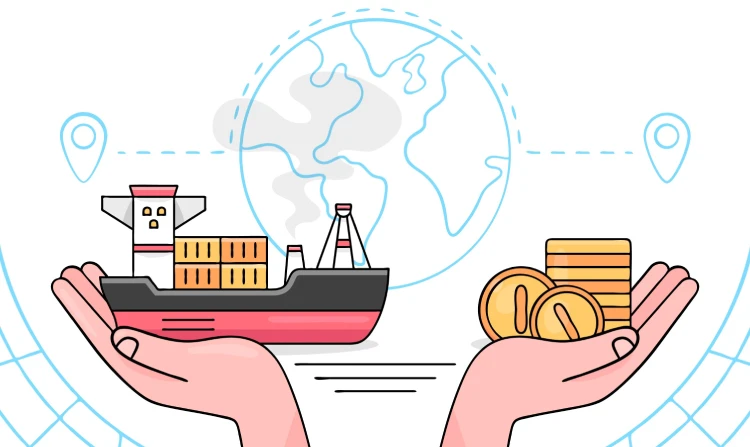There is no item in your cart

In a world that thrives on connectivity and rapid exchange, efficient logistics forms the backbone of today’s global economy. The ability to move goods, services, and information swiftly and reliably has become essential for businesses to remain competitive and for economies to grow sustainably. Let’s delve into the critical reasons why efficient logistics is indispensable in the modern global landscape.
1. Driving Economic Growth
Efficient logistics systems enable the smooth flow of goods and materials across borders, fostering trade and economic development. By optimizing supply chains, businesses can reduce costs, improve productivity, and reach new markets.
Key Impacts:
- Enhances export and import activities.
- Supports job creation in transportation, warehousing, and related industries.
- Increases GDP through streamlined operations and reduced wastage.
Countries with robust logistics infrastructure often see accelerated economic progress due to the seamless integration of domestic and international trade.
2. Reducing Costs and Enhancing Profitability
Logistics efficiency directly impacts a company’s bottom line. Streamlined operations reduce transportation costs, minimize delays, and eliminate unnecessary handling of goods.
Benefits for Businesses:
- Lower inventory holding costs through just-in-time delivery systems.
- Reduced fuel consumption and transportation expenses.
- Improved resource utilization across supply chains.
Companies that invest in efficient logistics can offer competitive pricing while maintaining profitability, a crucial advantage in today’s fast-paced market.
3. Supporting Globalization and Market Expansion
The global economy thrives on interconnected supply chains that link producers and consumers across continents. Efficient logistics makes it possible for businesses to expand into international markets while maintaining high service standards.
Globalization Advantages:
- Faster delivery times and reduced lead times.
- Access to diverse resources and production capabilities.
- Enhanced competitiveness in global markets.
By optimizing logistics, companies can cater to international demand seamlessly, building stronger customer relationships and brand loyalty.
4. Improving Customer Satisfaction
In an era of instant gratification, customer satisfaction hinges on timely and accurate delivery of goods. Efficient logistics ensures that businesses meet consumer expectations, enhancing brand reputation and loyalty.
Key Factors:
- Reliable order fulfillment and tracking systems.
- Shorter delivery times with reduced errors.
- Proactive communication about delays or issues.
Companies that prioritize logistics efficiency are better equipped to deliver exceptional customer experiences, gaining a competitive edge in the market.
5. Promoting Sustainability and Environmental Responsibility
With increasing awareness about climate change, efficient logistics systems play a crucial role in reducing the environmental impact of global trade. By optimizing routes, consolidating shipments, and leveraging eco-friendly technologies, businesses can minimize their carbon footprint.
Sustainable Practices Include:
- Using fuel-efficient vehicles and alternative energy sources.
- Reducing waste through better packaging and handling.
- Encouraging digital processes to minimize paperwork.
Sustainable logistics not only benefits the planet but also appeals to eco-conscious consumers, driving long-term business success.
6. Enhancing Crisis Resilience
Efficient logistics systems are vital in managing disruptions caused by global crises such as pandemics, natural disasters, or geopolitical tensions. A well-structured logistics network enables quick adaptation and recovery.
Crisis-Driven Benefits:
- Ensures continuous supply of essential goods.
- Minimizes economic losses through rapid response mechanisms.
- Builds resilience against future uncertainties.
By investing in logistics efficiency, businesses and governments can better navigate challenges and ensure stability during turbulent times.
Conclusion
Efficient logistics is no longer a luxury but a necessity in today’s interconnected global economy. From driving economic growth to improving customer satisfaction and promoting sustainability, its impact is far-reaching. Businesses that prioritize logistics efficiency not only gain a competitive edge but also contribute to a more resilient and sustainable global market.
As the world continues to evolve, the importance of logistics will only grow. Embracing innovation and collaboration in this field will be key to unlocking new opportunities and ensuring long-term success.
